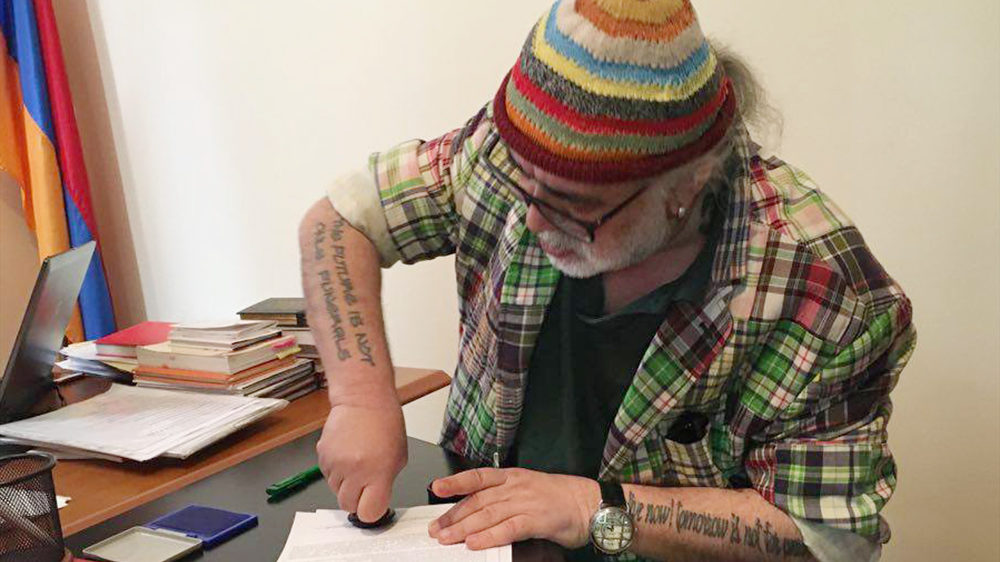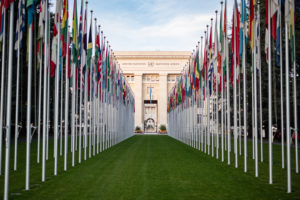
Establish Human Rights Houses
Human Rights House Foundation works with national human rights organisations to establish Human Rights Houses. The aim is to protect, empower, and support human rights organisations and defenders at the national level. Ultimately, the Houses aim at strengthening civil society and advancing human rights.



Why?
Civil society is a key driver for the protection and advancement of human rights at home and abroad. Yet the space for civil society is closing and human rights defenders are increasingly under threat.
Human rights defenders and their organisations face difficulty accessing resources, organising and associating in groups, and working openly to serve the human rights cause.
Practical, long-term commitment in the form of Human Rights Houses is a sustainable and effective answer to these difficulties. A House is an adaptable way to protect, empower, and support human rights defenders and their organisations at the national level, and to ultimately advance human rights in a country.
The aim is for Human Rights Houses to become national centres for human rights and places that draw the attention of anyone engaged in human rights in the country.

How?
Human Rights House Foundation facilitates the process of establishing Human Rights Houses. We inform interested human rights organisations about the idea and concept. Later, we introduce the project to potential donors, aid communication between the participants, and provide advice.
Download our manual for establishing a Human Rights House.
For more information, please contact us at house@humanrightshouse.org.
Establishing a Human Rights House takes time and effort. The process only takes place where there is a need and a call from organisations in the particular country, and where the House can add value to the work of the involved organisations and civil society in general.
HRHF works with national human rights organisations to develop House models that address the different needs and risks of these organisations, to provide the optimal solution to serve the human rights cause in each country and region.
The project can be divided into three overlapping phases:
During the exploratory phase, HRHF carries out a feasibility study and together with the local human rights organisations consider whether it is possible and desirable to establish a Human Rights House in the country. This assessment requires a detailed analysis of the needs and possibilities based on a wide range of relevant sources of information, such as human rights organisations, politicians, judicial and technical experts, potential donors, and researchers.
It must be shown that the Human Rights House has a positive role to play and that it is possible to establish it within the legal and political framework of the country.
If a group of organisations – with HRHF’s support – decides to establish a Human Rights House, a longer phase starts in which the necessary preparations are made. This includes planning, organising, agreeing on basis for cooperation, and raising funds for the project.
Hard work and commitment is needed, with the leadership of all organisations involved and actively taking part in the decision-making process.
When all preparations have been made and funding is available, the Human Rights House can be established and the implementation phase begins.
The House is bought, constructed, or rented, and the participating organisations usually move their secretariats to the new location. The implementation of the project entails challenges in logistics, organisation, and management for everyone involved.
Once the House is established, the management of the House is transferred to the local partners, the member organisations of the House.

Impact
When organisations co-locate in a Human Rights House, they enjoy more collaboration, networking, moral support, and solidarity, and they become more accessible to the public.
Co-location in a Human Rights House enables organisations to share space and resources, and makes them more sustainable and efficient by reducing administration costs.
The joint House platform strengthens their visibility and amplifies their voice, raising their profile and increasing their impact. The House helps to protect human rights organisations from threats and harassment.
Once a House has been established, HRHF continues to provide support in a variety of ways. Read more about HRHF’s ongoing work with the Human Rights Houses.






